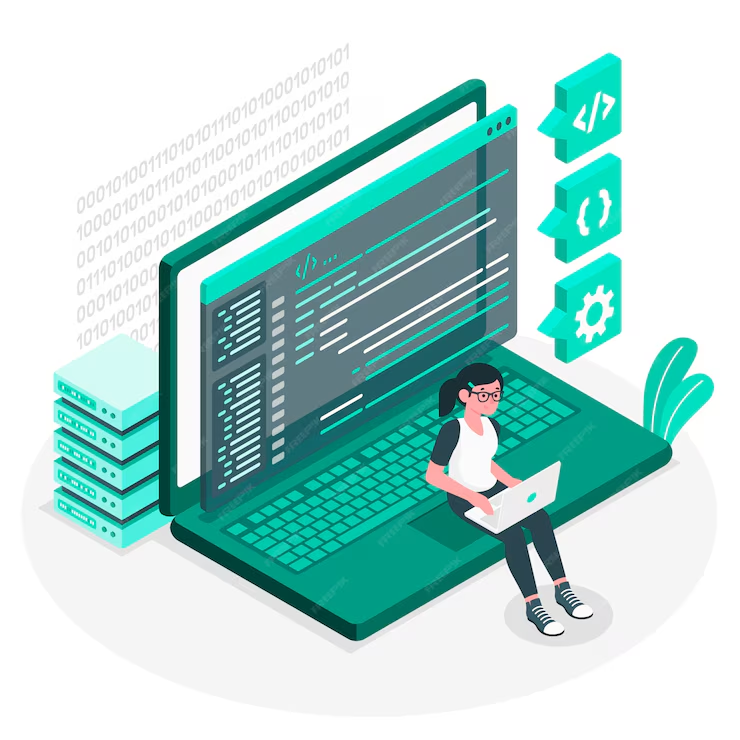When evaluating potential Python developers for your team, understanding the libraries and frameworks they are proficient in is crucial. Python is widely known for its simplicity, but it’s the vast ecosystem of libraries and frameworks that truly unlocks its potential across various industries, from data science and web development to machine learning and artificial intelligence.
Whether you’re looking to hire Python programmers for a specific project or a long-term commitment, being aware of these key tools will give you a solid grasp of their skills and expertise. In this blog, we’ll dive into the top Python libraries and frameworks that every programmer should know, helping you make informed decisions as a hiring manager.
Essential Python Tools that Make Programmers Stand Out
1. Django: The Web Development Powerhouse
Django is one of the most popular high-level web frameworks in the Python ecosystem. It’s well-known for helping developers build robust, scalable web applications quickly. The “batteries-included” philosophy of Django means that it comes pre-packaged with many essential features, such as an ORM (Object Relational Mapper), an admin panel, and built-in security features.
When you hire Python programmers with Django experience, you’re ensuring they can handle complex backend tasks and build fast, secure web applications. Additionally, Django’s strong community support means your development won’t lag due to lack of documentation or third-party modules.
2. Flask: Lightweight and Flexible for Small Projects
While Django is great for large-scale applications, Flask offers a lightweight alternative for smaller projects or where flexibility is paramount. Flask is a micro-framework, meaning it doesn’t come with as many built-in tools, allowing developers the freedom to choose the components they need.
Flask is ideal for startups or projects with custom needs, where rapid prototyping and agility are required. Developers familiar with Flask are typically skilled in making high-level architectural decisions, which is essential for projects that start small but may need to scale later.
3. Pandas: A Must for Data Manipulation
If you’re looking to hire Python programmers for data-centric roles, Pandas is a non-negotiable skill. This library is crucial for data manipulation, cleaning, and analysis. It provides easy-to-use data structures like DataFrames, which allow developers to handle large datasets efficiently.
With Pandas, programmers can merge, reshape, and clean data in ways that would be time-consuming in raw Python. When your developer is adept at Pandas, they are much better equipped to work in industries like finance, healthcare, or any field involving big data.
4. NumPy: Foundation of Scientific Computing
NumPy is another essential library for Python programmers, particularly those working with numerical data or scientific computing. It provides support for large multi-dimensional arrays and matrices, along with a collection of mathematical functions to operate on these arrays.
If you’re involved in machine learning, engineering simulations, or scientific research, hiring Python developers who are proficient in NumPy is critical. This library is often paired with other libraries, like Pandas and SciPy, to create powerful data analysis pipelines.
5. TensorFlow: Powering Machine Learning and AI
If your company is delving into machine learning or artificial intelligence, hiring Python programmers with experience in TensorFlow can be a game-changer. TensorFlow, developed by Google, is one of the most widely used libraries for building and deploying machine learning models.
It supports a wide range of algorithms and has excellent scalability. From training neural networks to building complex models, a developer who knows TensorFlow will help you stay competitive in the AI space. Their skills will directly impact the speed and accuracy of your machine learning deployments.
6. Keras: Simplifying Deep Learning
While TensorFlow is a powerhouse, Keras is a user-friendly, high-level API built on top of TensorFlow (and sometimes Theano or CNTK). It simplifies the process of building and testing deep learning models, making it easier for developers to work with neural networks without diving into low-level computations.
If you’re hiring for a role that involves deep learning, ensure your Python developers have experience with Keras. It accelerates the model-building process and reduces development time while ensuring that the applications still perform well.
7. PyTorch: Popular for Research and Academia
Another key player in the machine learning space is PyTorch, which is particularly favored in research settings. While TensorFlow dominates in the industry, PyTorch offers dynamic computation graphs, making it a popular choice for academic research and development. It’s known for being more intuitive and flexible compared to TensorFlow, which can be crucial in research environments where flexibility and experimentation are key. When you hire Python programmers with PyTorch experience, you gain access to cutting-edge AI and ML research capabilities.
8. FastAPI: The Fastest Growing Web Framework
For developers looking to build APIs quickly, FastAPI is becoming the go-to framework. It’s modern, fast, and built for speed, enabling developers to create RESTful APIs with less boilerplate code. FastAPI also integrates well with asynchronous programming in Python, making it suitable for real-time applications.
When hiring developers who are proficient in FastAPI, you’re ensuring that your team can build scalable APIs that perform well under heavy loads, making it perfect for modern web applications.
9. Scikit-learn: Machine Learning Simplified
Scikit-learn is an essential library for anyone working in data science or machine learning. It’s built on top of NumPy, SciPy, and Matplotlib, making it powerful for data mining and analysis. Scikit-learn is commonly used for tasks such as classification, regression, clustering, and dimensionality reduction.
When you hire Python programmers familiar with Scikit-learn, you’re adding team members who can help build predictive models, automate data analysis tasks, and implement various machine learning algorithms easily.
10. SQLAlchemy: For Advanced Database Management
SQLAlchemy is one of the most powerful tools for Python developers when it comes to managing relational databases. It’s an ORM (Object Relational Mapper) that makes database interactions simpler by converting Python objects into database records and vice versa.
If your project relies heavily on database interactions, ensuring your Python developer knows SQLAlchemy will make database migrations, schema design, and performance tuning much easier. SQLAlchemy is crucial for projects that scale, ensuring that the database backbone remains solid and easy to manage.
Concluding Thoughts
Hiring Python programmers means more than just finding someone who can write code—it’s about finding professionals who are proficient in the right libraries and frameworks for your business needs. Whether you’re looking for web development, machine learning, or data science expertise, understanding the tools your developers should be familiar with can help you make more informed hiring decisions.




